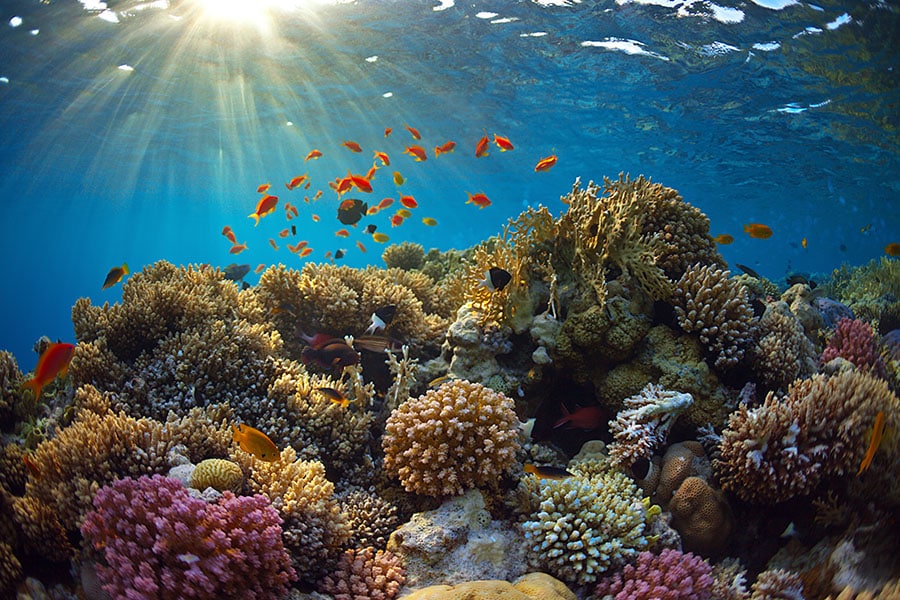
Algae is assisting Florida Keys corals survive heatwaves
Published in the journal Science Advances, the study reminds us that corals live and evolve thanks to the presence of single-celled algae present in their tissue
 Octocorals owe their survival to symbiotic algae inside the reefs, protecting them from ocean warming.
Image: Borisoff / Shutterstock
Octocorals owe their survival to symbiotic algae inside the reefs, protecting them from ocean warming.
Image: Borisoff / Shutterstock
Research carried out in the Florida Keys has found that "soft" corals are more resistant to ocean warming than "hard" corals in this region. The reason for this? An algae living in the reefs acts as a kind of thermoresistant guardian angel, helping corals to survive heat waves.
For over two years, American geology professor Mary Alice Coffroth has been studying octocorals, also known as "soft" corals, which thrive in the warm waters of the Caribbean Sea, and more specifically in the Florida Keys in the USA. By observing them, Professor Coffroth and researchers from the University of Buffalo found that three different species of soft corals had survived heat waves. According to the research team, these corals owe their survival to symbiotic algae located inside the reefs, providing them with protection against ocean warming. The algae in question is a species from the genus Breviolum.
Published in the journal Science Advances, the study reminds us that corals live and evolve thanks to the presence of single-celled algae present in their tissue. When this symbiosis is disrupted, such as by warmer waters, the corals lose their nutrients, which can lead to their death, known as bleaching and unfortunately amplified by increased ocean temperatures. The research showed, however, that although densities of symbionts in Breviolum decreased during heat waves, they quickly recovered. "Octocoral mortality was low compared to that of their scleractinian [hard coral] relatives," notes Professor Coffroth in a press release.
Also read: Global warming could benefit coral-eating starfish
The aim is to continue this line of research in order to learn more about the relationship between coral reefs and the sustainability of symbiotic algae, while taking steps to slow the harmful effects on the planet and oceans caused by human activity (overfishing, fossil fuel production...). "There is evidence that corals are withstanding higher temperature now than they did in the 1960s. That signals evolution, but the problem is that climate change is moving too fast, faster than evolution," stresses Professor Coffroth, before concluding that "the resistance and resilience of Caribbean octocorals offers clues for the future of coral reefs."







